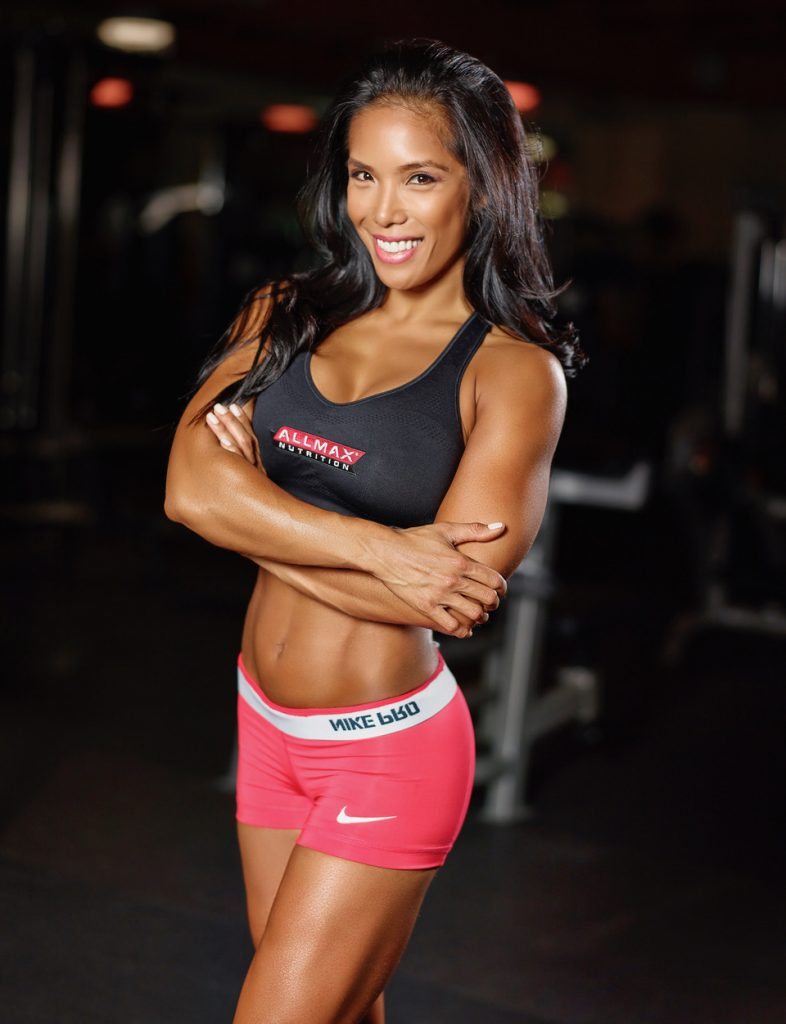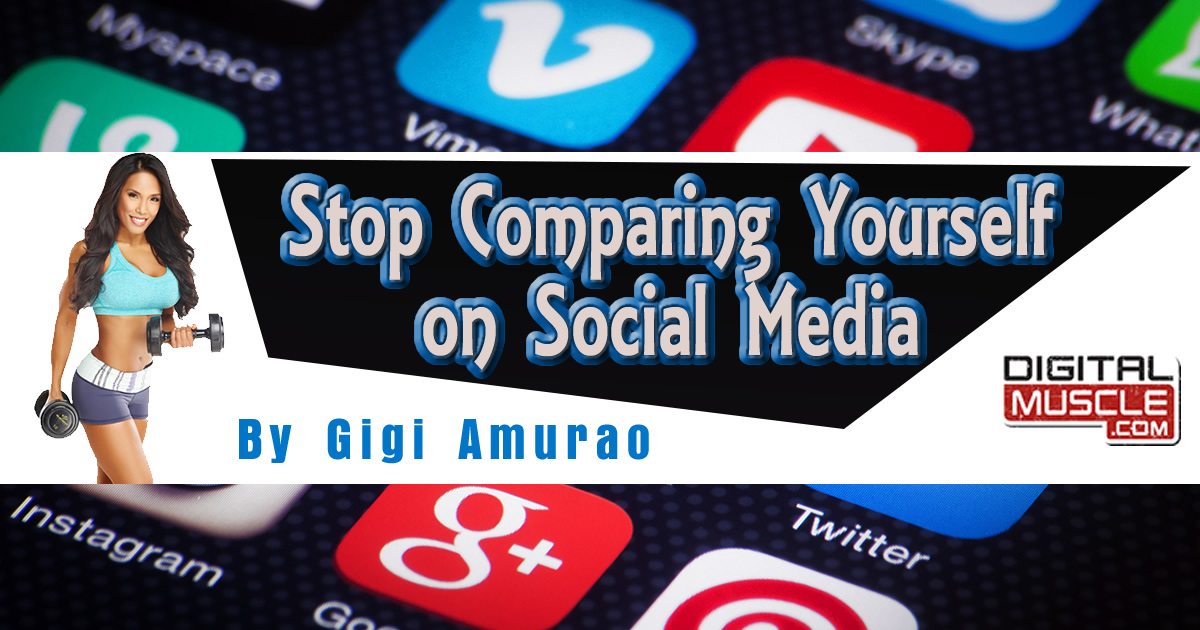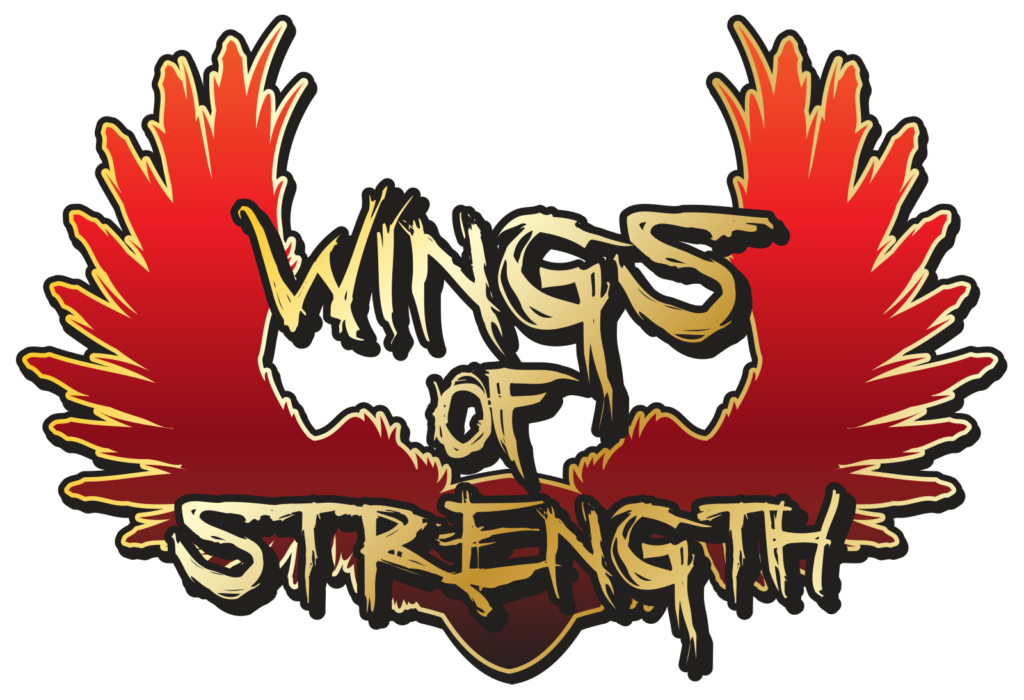By Gigi Amurao
Is your fondness for social media killing your fitness goals and wrecking your self-esteem? Everywhere you look, people are on their phones, taking selfies, or scrolling through social media. If you want to get in touch with someone, you have at least six different ways to do it—Facebook, Instagram, Pinterest, Twitter, Snapchat, or Periscope. Gone are the days when you had to sit at home and wait for someone to call or wait to watch your favorite TV program. Today, everything is instantaneous.

The arrival of social media into our world has been both a blessing and a curse. I’ll be the first to admit that I’m addicted to Instagram. We all have our reasons for the constant scrolling, whether it’s to check out new trends, post our business news, see how our friends are doing, or just pass time on line at Starbucks. For me, it’s a mixture of business, curiosity and passing time. From a business standpoint, the more fitness-related videos and content I post, the more engagement, likes and followers I get, which in turn generates more inquiries about what I do and how I can help people reach their fitness goals.
On the flip side, thanks to Facebook and the others, we are obsessed with social media and celebrities. We are constantly aware of how we look, and we feel pressured to achieve a perfect, toned figure like the ones being flaunted by those we “follow.”
Most times, when I meet with new clients and ask about their goals, they pull out their phones, open Instagram or Facebook, and show me a PhotoShopped picture of some Insta-famous person who has perfectly rounded glutes, a set of abs you can bounce a quarter off, and is shredded as anything. Then they look at me and say, “I want to look like that!” Seeing photos and visualizing how you want to look is great, and it gives you something to work for, but if the image presented is a distortion of reality, how can any coach help her client achieve that?
Another scenario I see a lot: a girl is getting ready to compete and is X weeks out. She tells me she’s not where she should be at X weeks out; I ask her why, and she says, “Well, I saw on Instagram that so-and-so is competing at the same show and she’s much leaner than I am.”

So many competitors spend hours on social media, judging and nitpicking others and comparing themselves to them as well. When it’s close to show time, they’re already stressed that they don’t look good enough, and it adds a negative energy that just drains them of the motivation to work toward what they need to look like onstage.
People think fitness models are lean and tanned and walk around at 8 percent body fat 24/7, 365 days a year. The truth is, the vast majority will only look their leanest for three to four weeks. Most of their photo shoots and promo shots take place during that time. The rest of the year they are bulking up and building muscle, which means they will have a higher body-fat percentage. In the off-season, those perfectly sculpted fitness models aren’t as lean as you saw them 16 posts ago.
Numerous studies have shown correlations between social media and self-esteem (do a search for those two terms together, and pages of articles come up). A frequent finding is that people can have feelings of insecurity or inadequacy due to the constant bombardment of images that are unnaturally perfect.
Consider this: when you take a selfie, how many times do you take it before you settle on the perfect pose, angle, and filter? What about the time it takes to think of a caption and hashtags, type them all out and post the picture. It takes a while, doesn’t it? And you’re just one person. Online celebrities who have massive followings are usually selling something or are sponsored, and many have a PR and/or marketing team to help with their social media accounts, as well as a professional photographer, editor and makeup artist to make them look like a perfect sweaty mess.
What’s more, they take hundreds of shots before they choose the perfect one to post for the masses. Do you have the time and resources to hire that glam team and take pictures all day?

This is not about trying to achieve your dream body; I have complete respect for those who decide to change their lives for the better. Just don’t compare your reality to what you see on social media. For one thing, there’s a huge chance that what you see is fake. If someone says she’s lost 10 pounds in a week, it’s most likely a Photoshopped image on a false advertisement, enticing you buy what they are selling.
Keep striving for your goals, but make sure they’re your goals and not what you think you should be going for or what social media suggests you should look like. Comparing yourself to others doesn’t move you farther ahead or improve your situation. Comparing just feeds your shame, fuels your feelings of inadequacy, and, ultimately, keeps you stuck in neutral.
There is no one correct path to fitness. Everyone has his or her own unique journey. What’s right for someone else won’t necessarily be right for you, and that’s okay. Your journey isn’t right or wrong, good or bad — it’s just different — and your body isn’t meant to look like anyone else’s. Remember that when you’re scrolling through those Instagram posts.
Check out more from Gigi!!!
As an IFBB bikini pro, a certified personal trainer, nutritionist, online coach, fitness model and TV host, Gigi Amurao blasted onto the competitive bikini scene in 2012. A lifelong athlete who excelled in collegiate lacrosse and gymnastics, she earned an MBA in marketing and an advanced certificate in sports and entertainment management and enjoyed a career in network advertising before finding her passion in helping others achieve their fitness goals. As a model, she’s appeared in Muscle & Fitness Hers, Inside Fitness, and Flex Magazine. DigitalMuscle.com is proud to feature Gigi here in her own featured blog!





